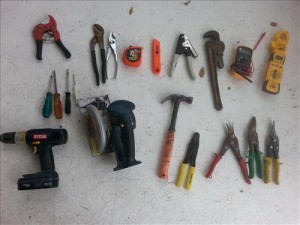
Starting out in the HVAC field can be hard, from finding that first job to buying all the tools you will need.
Many of the tools are not cheap, and buying them all at one time can be a big investment.
Below is a list of tools an HVAC tech or HVAC installer will need.
Only the basic tools are listed below, with the more advanced technician tools listed here.
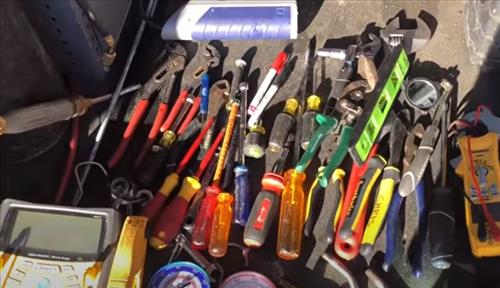
Both a technician and an installer will need the tools below, with a technician also needing more advanced tools.
Keep in mind that depending on who you work for, some tools may not need to be bought.
For example, if you get a job in a government position, such as a County job or a School District job, then you may not have to buy many tools. Most of us HVAC technicians are not lucky enough to get a government job, so buying tools will most often be required.
Some tools I would put off buying, and I will list them separately; if you are new to HVAC, things such as a recovery machine or refrigerant scale is too much.
Buying a recovery machine is overkill when you are starting out, and many shops likely will have a recovery machine you can borrow if needed.
Everyone will have a different experience, and it will all depend on the company that first hires you.
The tools needed will also depend on your position, such as installer, service technician, or sheet metal work.
HVAC Tool List for Technician and Installer
- Cordless Drill
- Cordless Saws
- Tape Measure
- Hammer
- Screwdrivers
- Drill Bits
- Wire Cutters
- Pipe Wrench
- Tin Snips
- Pliers
- Tool Bag
- Multi Meter
- Extension cord
- Utility Knife
- HVAC Panduit Strap Gun
- HVAC-Plumbing PVC Pipe Cutter
- Caulking Gun
- Ladders
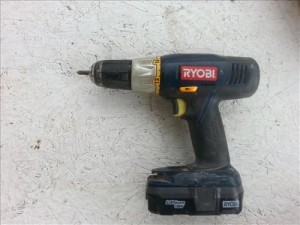
You will need a cordless drill when starting out. I wouldn’t go for an expensive brand at first unless you can afford it; something like Ryobi is a good starter cordless drill. I use Ryobi as a backup, and they work quite well. Dewalt is also a good name brand.
Whichever brand, just be sure to get an 18 volt cordless and not a 6-volt or 12-volt drill.
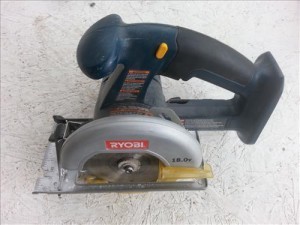
For an installer, saws will be crucial to getting a job done in a timely manner, and they make life easier; everyone needs at least one.
Both a Sawzall and Circular saws are recommended, but in a pinch, a Sawzall can cut pretty much anything you come across with the right blades.
Whichever brand of cordless drill you decide on should also be the same brand of cordless saws. Keeping batteries charged is always on the mind; there is nothing worse than being in the field and having dead batteries, so more the better.
Plus, cordless batteries go bad, so it makes sense not to mix brands too much when it comes to cordless tools.
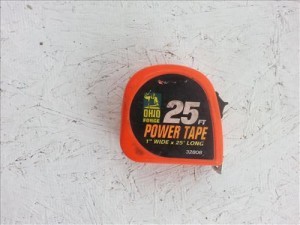
A tape measure will also be needed. Don’t go for anything fancy here; tape measures get stepped on, kinked, and just don’t last long. Get one short ten-foot tape measure for quick jobs and one longer 25-30 foot tape measure for those longer measuring distances.
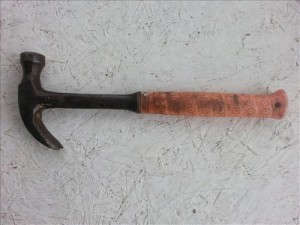
Metal fabricators will use many different types of hammers to do metal work, but almost everyone else can get by with a basic hammer.
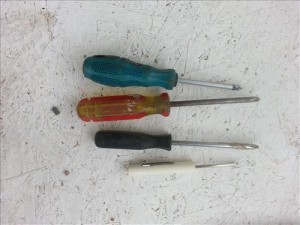
Both Phillips and regular screwdrivers of all size types will be used. You can go from using a large screwdriver to pound out a hole in the sheet metal to replacing a thermostat that uses very small drivers.
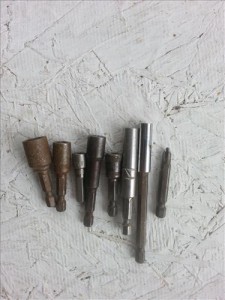
Different bits will be needed to use with a cordless drill; buying a whole set of these is recommended. Phillips screwdrivers, 1/4 inch and 5/16, will be the most used, but you will run into all kinds of different sizes, try to get magnetic tips if you can; they make life easier.
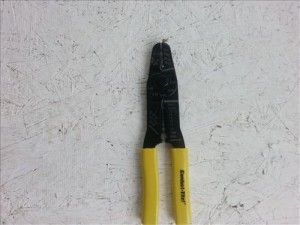
A good set of wire cutters will be needed. There is a lot of wiring in HVAC.
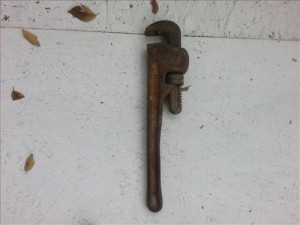
Pipe wrenches are mainly used when installing or replacing gas lines. Having two is a good idea, as gas lines often take two when tightening up a line.
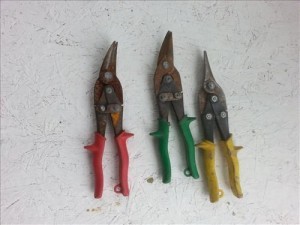
There are three types of tin snips Left-cut, Right-cut, and Straight-cut. Installers and sheet metal workers will use these a lot, but even service techs will need a set.
Tin snips are a necessary part of HVAC as there is a lot of ductwork involved with tin, often needing to be modified.
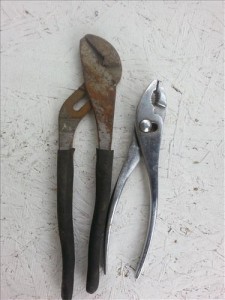
At least a basic set of pliers will be needed.
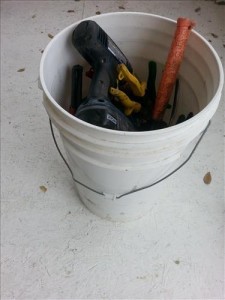
A decent tool bag is a good idea. I use a good tool bag when I do service work, but if I have to do an install, I simply use an old five-gallon paint bucket as it is easier for me to tie a rope on the handle and pull up on a roof and just toss everything into it when done.
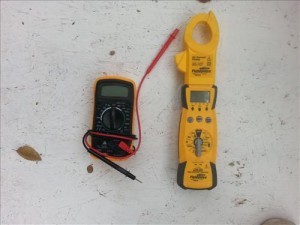
If you are doing service work, an HVAC multi-meter will be needed to troubleshoot units. For someone who is only going to be doing install work, then a basic multi-meter will be fine as you will only be checking for voltages.
There are many available that come in all shapes, sizes, and price ranges.
One of my favorites is the Fieldpiece HS33 which works great and also comes with an optional Amp Clamp making it easy to quickly see if a motor is Over-Amping or similar.
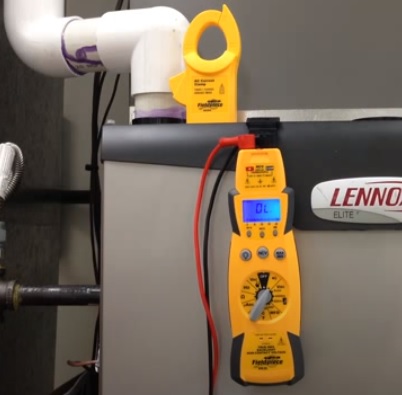
It has been around for a while, which means the price has come down drastically, making it a good starter HVAC meter, in my opinion.
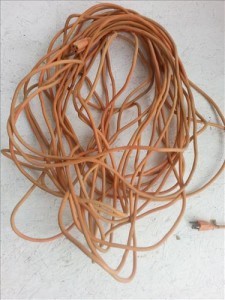
Buying an extension cord is a good idea. They are cheap and come in handy, from charging cordless batteries to using power tools when needed. Just try to keep your extension cords a little more untangled than mine.
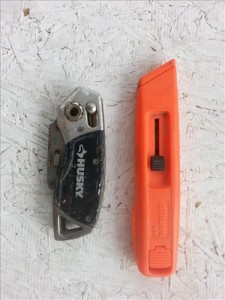
A good utility knife will be used a lot. I like the kind I can carry on my side, but it is just a personal preference.
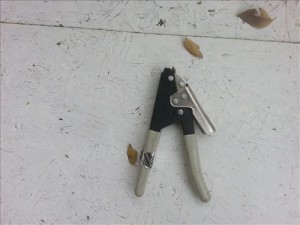
If you are doing installs, then you will definitely need a strap gun. If you are doing service or metalwork then you can leave it out for now.
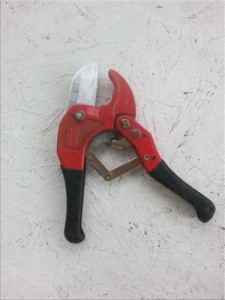
A PVC pipe cutting tool makes life easier when you have to run or replace PVC, and they are cheap, so I would suggest getting one.
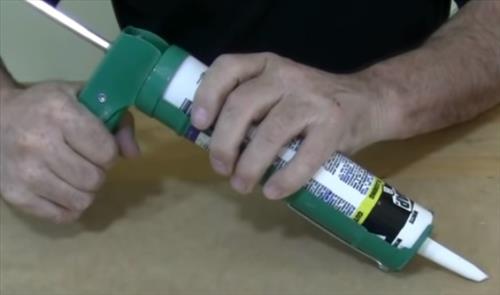
Caulking guns are used a lot in HVAC to seal up openings and any cuts that are made.
They are cheap low-cost items and will be needed.
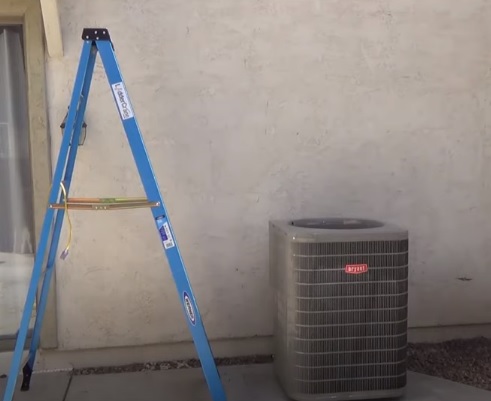
This one I almost didn’t put down as most shops will have ladders, so don’t rush out and buy one; just keep in mind they will be needed and used a lot.
Thanks for the list very helpful!!!
Thank you for this list of tools, I will start buying them bit by bit .
This was very helpful, as a new learning hvac tech I know I have a lot to learn( I have over thirty years a mechanical field tech – in all types of equipment including coke and pepsi vending machine. But , none in refrigeration.